What if you could track every customer interaction, ensuring that no touchpoint goes unnoticed? Imagine being able to see the entire journey your customers take, from the first ad they click to the moment they complete a purchase. For many marketers, this is not just a dream—it's a necessity. However, the reality is that 63% of marketers find multi-channel attribution very challenging (source: eMarketer). This difficulty can lead to missed opportunities and inefficient spending, as understanding customer journeys is crucial for smarter marketing decisions.
Marketing attribution analytics provides a clear view of customer interactions across all marketing channels. By leveraging these tools, businesses can identify which touchpoints drive conversions, providing invaluable insights into customer behavior and preferences. For instance, a retailer might discover that their email campaigns lead to significantly higher conversions compared to social media ads. This knowledge allows them to allocate their marketing budget more effectively, focusing on the channels that yield the best results.
Implementing marketing attribution analytics can dramatically enhance your marketing strategies, and you can see how with Cometly's demo. By understanding customer journeys through marketing attribution, you can optimize your marketing efforts and spending, ensuring every dollar is well spent and contributes to your overall success.
Best for: Marketing teams seeking comprehensive, data-driven solutions.
Cometly is a marketing attribution analytics tool that empowers marketers. By utilizing real-time data analysis and user-friendly dashboards, Cometly helps teams track their campaigns and make immediate adjustments based on insights. Users report an average 20% increase in ROI after implementation, showcasing the effectiveness of this tool in enhancing marketing performance.
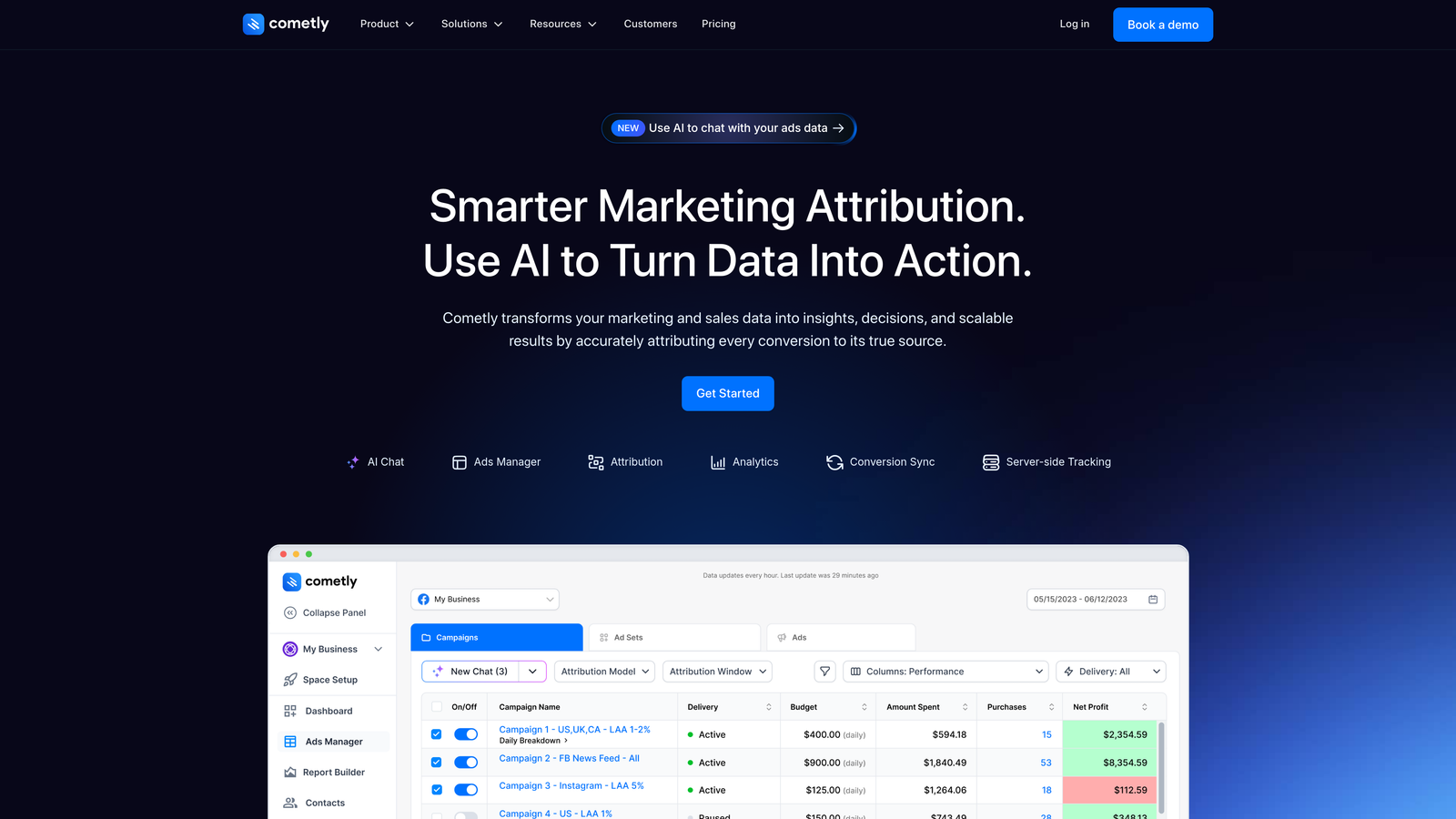
One of the standout features of Cometly is its multi-touch attribution capability, allowing marketers to understand the influence of all touchpoints on customer conversions. The customizable dashboards provide tailored insights that cater to individual business needs, ensuring that marketers have confidence in their data accuracy for informed decision-making.
Cometly is ideal for companies with diverse marketing strategies looking to improve their performance. However, new users may face a learning curve as they familiarize themselves with the platform. Still, the user-friendly interface and robust insights make it a compelling choice for any marketing team.
For more information on how Cometly can transform your marketing analytics, check out their marketing attribution software.
Best for: Businesses already embedded in the Google ecosystem.
Google Analytics 4 (GA4) is pivotal for businesses looking to track user journeys effectively. As 81% of businesses use Google Analytics for tracking performance (source: Statista), GA4 stands out with its enhanced tracking capabilities and AI insights that help marketers make better decisions.

GA4’s enhanced event tracking offers detailed user interaction data, enabling businesses to understand how customers engage with their brand. Additionally, the AI-driven insights provide predictive analytics to forecast user behavior, optimizing marketing efforts before they even occur. The robust integration with Google Ads ensures cohesive campaign management, making it an invaluable tool for businesses that rely on paid advertising.
While GA4 is familiar to many Google users, the initial setup can be complex, requiring attention to detail to capture all relevant interactions accurately. However, for firms utilizing Google Ads, GA4 can be particularly beneficial, providing invaluable insights into campaign performance and customer behavior.
For detailed guidance on implementing GA4, visit Google's official support page.
Best for: Small to medium businesses seeking an integrated marketing solution.
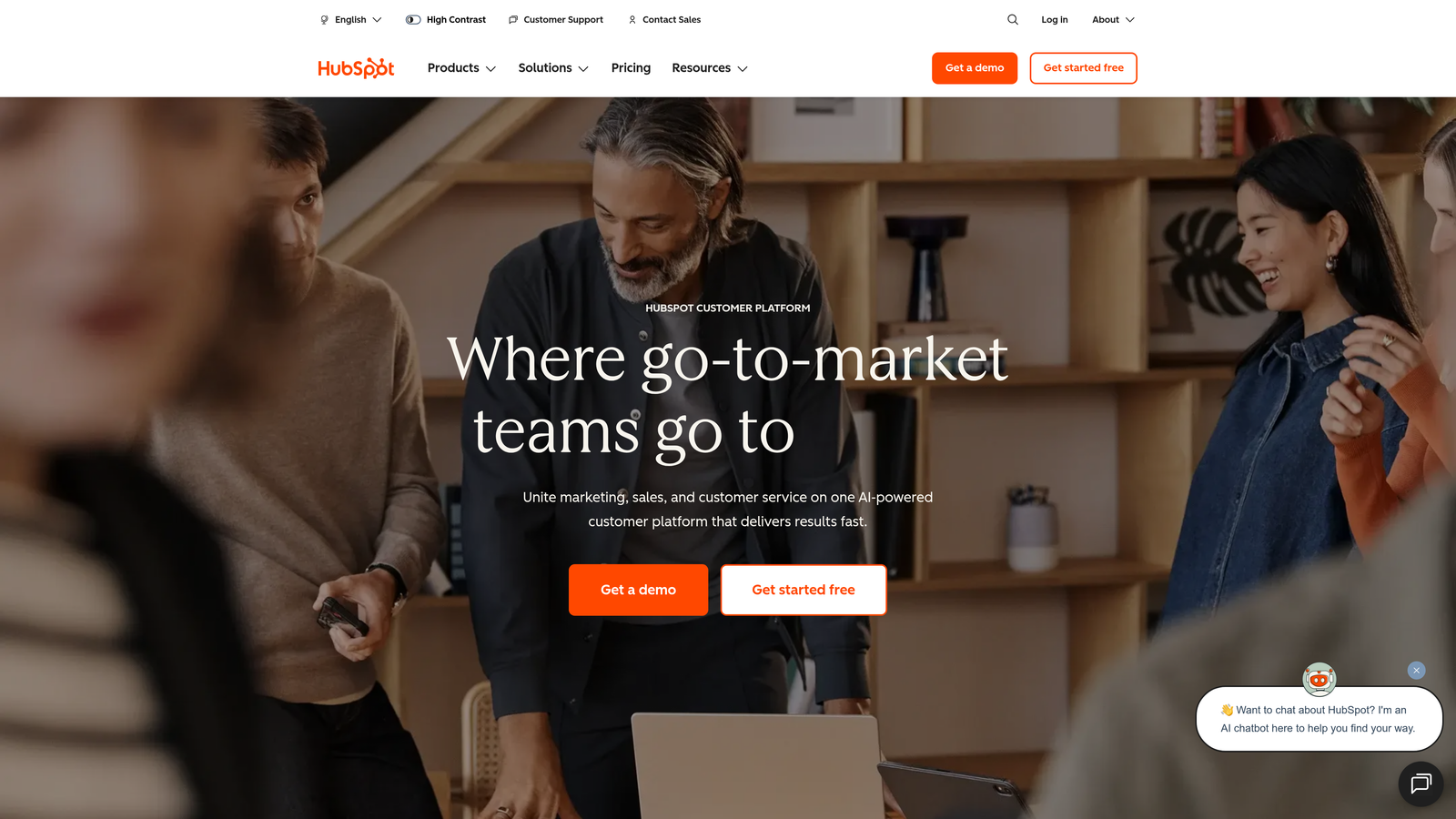
HubSpot is a platform that provides a seamless experience for managing both marketing and sales. HubSpot users can expect a 36% increase in leads (source: HubSpot), thanks to its attributed revenue reporting and user-friendly design.
The platform's intuitive interface is designed to streamline marketing and sales activities, allowing teams to collaborate effectively. Attributed revenue reporting helps track the sales impact of marketing efforts, ensuring that businesses can measure their return on investment accurately. This is particularly beneficial for teams that prefer a single platform to manage their marketing activities.
While HubSpot offers a comprehensive toolset and ease of use, its subscription costs may be high for startups. However, for those seeking an all-in-one solution, HubSpot stands out as a leading choice in integrated marketing.
For best practices and more information, check out HubSpot’s resource page on best practices.
Best for: Large enterprises with sophisticated analytics requirements.
Adobe Analytics offers powerful analytics tools specifically designed for enterprise-level needs. With 60% of enterprise users reporting higher ROI using Adobe Analytics (source: Adobe), this solution caters to businesses looking for advanced capabilities.
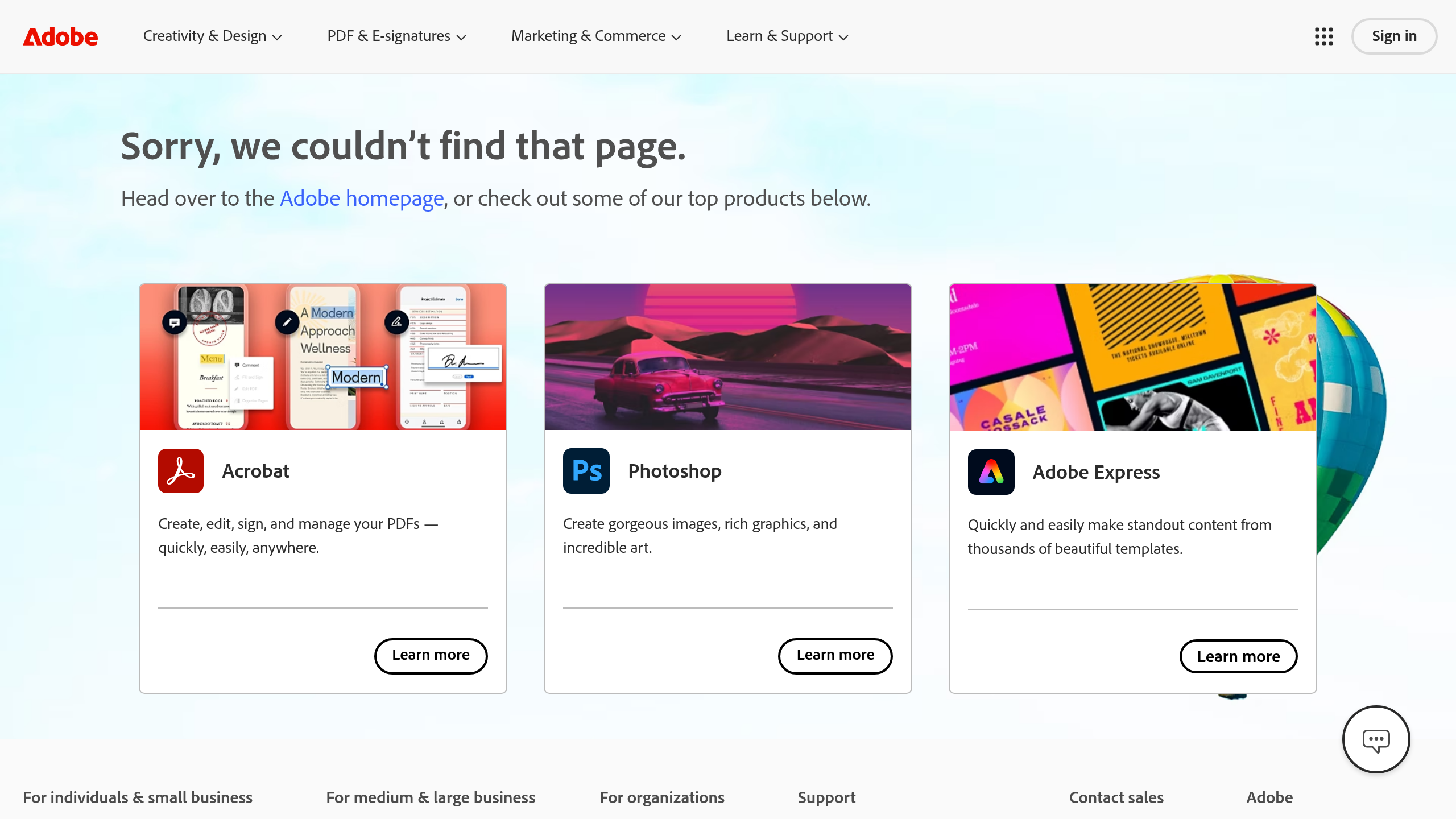
Adobe Analytics provides predictive analytics to forecast customer behavior, enabling enterprises to tailor their marketing strategies effectively. Its advanced customer segmentation tools allow for targeted marketing campaigns, ensuring that the right message reaches the right audience. Comprehensive reporting tools offer deep insights into performance, making it an ideal choice for organizations managing vast amounts of data.
While the richness of insights is a significant advantage, the higher cost of implementation and maintenance may deter some businesses. Nevertheless, enterprises that require robust analytics capabilities will find Adobe Analytics to be an invaluable asset.
For further information, visit Adobe’s product page for more details on their offerings.
Best for: Marketers who are new to attribution analytics.
Attribution focuses on making multi-touch reporting accessible to all marketers. With 72% of marketers saying ease of use impacts their tool selection (source: MarketingProfs), Attribution prioritizes user-friendliness for quick adaptation.
This tool simplifies multi-touch reporting, allowing marketers to see transparent analytics quickly. Its intuitive interface facilitates user onboarding, ensuring that teams can make immediate adjustments based on quick insights. This is particularly beneficial for marketers who are new to attribution analytics and seek straightforward solutions.
However, while Attribution is easy to use for beginners, it may lack some advanced features that experienced marketers desire. Still, for those entering the world of attribution, this tool offers a solid foundation.
For more details, visit Attribution’s official website.
Best for: Data-driven organizations that prioritize analytics.
Looker revolutionizes how marketers analyze and visualize data. Companies using data visualization see a 28% increase in productivity (source: Tableau), showcasing the power of data interpretation.
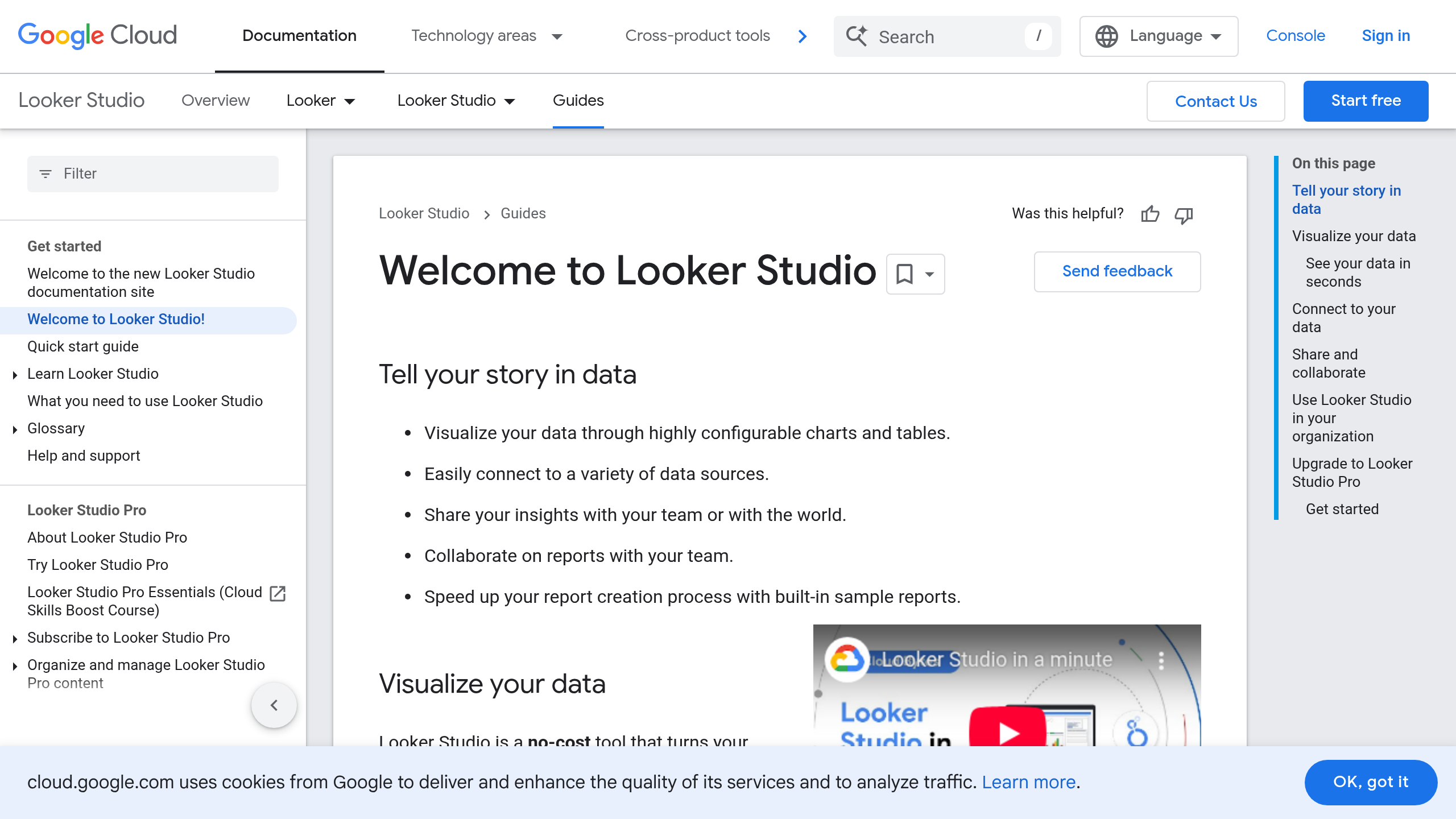
Looker's customizable visualizations allow users to tailor their analytics to specific business needs, enhancing data interpretation. The seamless integration with various data sources ensures comprehensive analysis, while advanced analytics capabilities provide deeper insights into customer behavior.
However, Looker requires data skills for effective use, which may pose a challenge for teams lacking technical expertise. Still, for organizations that rely on data for strategic decision-making, Looker stands out as a powerful tool.
For user guidance, check out Looker’s support documentation for helpful resources.
Best for: Agencies managing multiple clients and campaigns.
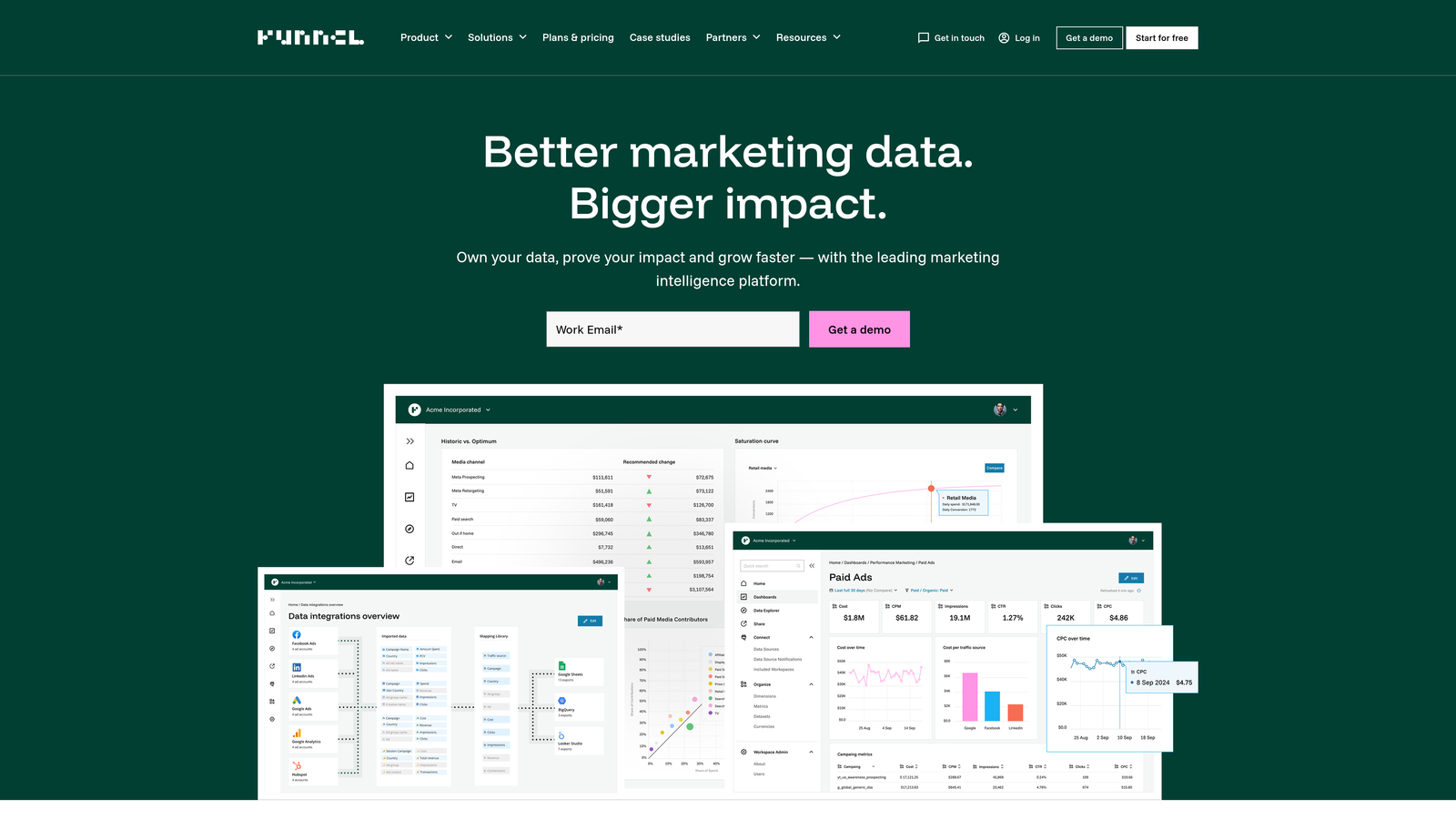
Funnel.io simplifies data aggregation for marketers, with 75% of marketers agreeing that data aggregation improves campaign performance (source: HubSpot). This tool offers comprehensive integrations with various marketing platforms, making it easy to manage multiple data sources.
The user-friendly interface allows teams to track campaign performance efficiently, while centralized data collection streamlines analysis. This is particularly beneficial for agencies handling numerous clients and campaigns, as it reduces the time spent on data management.
While Funnel.io offers extensive integrations, its pricing may be a barrier for smaller agencies. Nevertheless, for those needing efficient data aggregation, Funnel.io is a strong contender.
To see successful implementations, visit Funnel.io's case studies showcasing their impact.
Best for: Companies prioritizing customer experience through data.
Segment provides robust customer data infrastructure for marketers, with 68% of marketers stating that data-driven decision-making enhances customer experience (source: McKinsey). Real-time data integration enhances customer insights, allowing businesses to personalize their marketing efforts effectively.
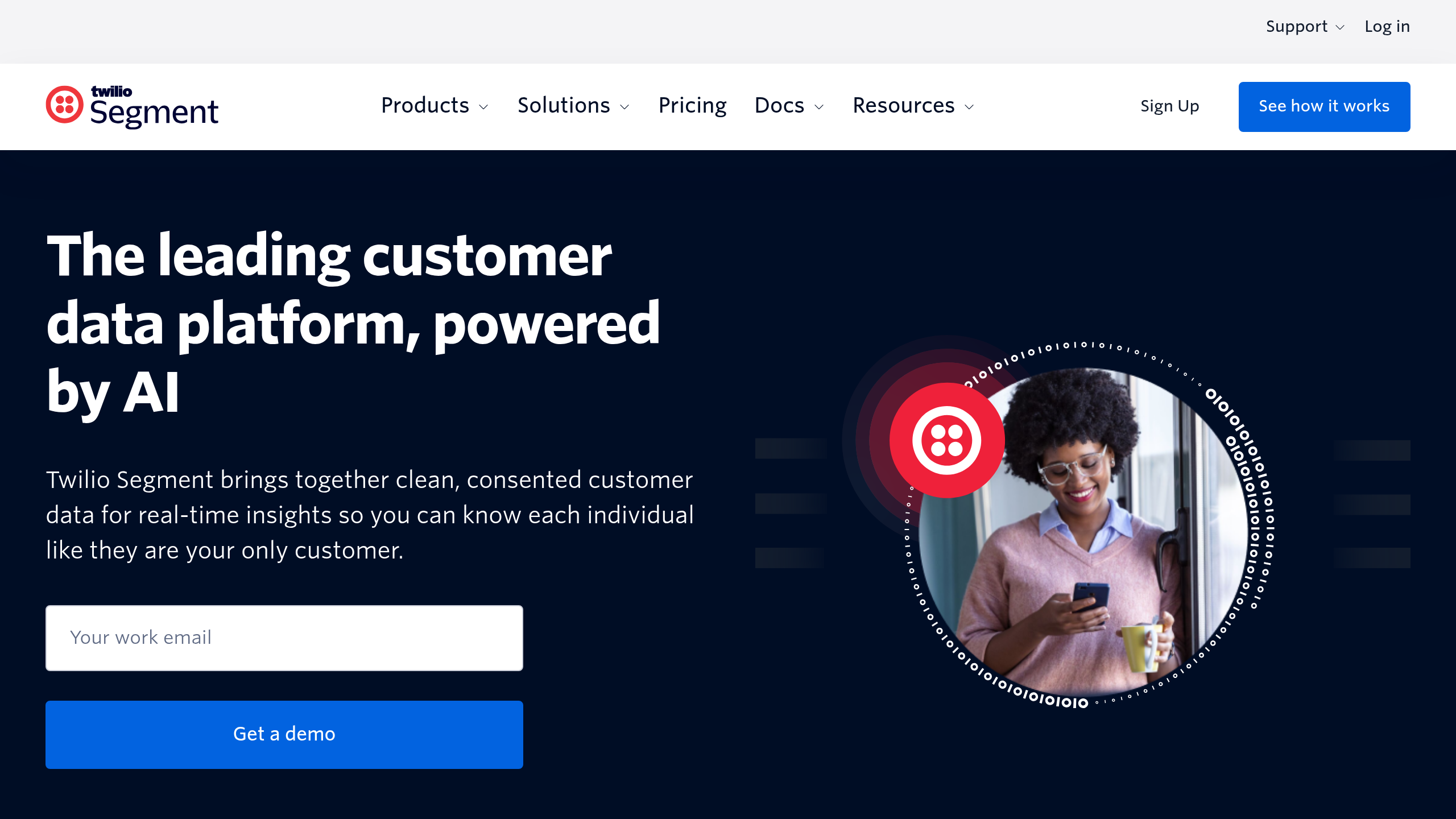
Segment's flexible architecture accommodates various data sources, ensuring that companies can leverage their data for targeted marketing strategies. This capability is crucial for businesses that want to harness data for personalized marketing to enhance customer experiences.
However, the complexity of Segment can be daunting for new users, which may require additional training. Still, for companies that prioritize customer experience through data, Segment offers powerful tools for success.
For more information, explore Segment’s learning center for detailed insights.
As we've explored, each of these marketing attribution tools offers unique strengths tailored to different business needs. Whether you're a small business looking for an integrated platform like HubSpot, or a large enterprise needing the power of Adobe Analytics, the right tool can significantly impact your marketing strategy.
When selecting a marketing attribution tool, consider your specific business needs, the complexity of your marketing strategies, and the level of support you may require. Explore how Cometly’s demo can help you make the best choice for your marketing needs.
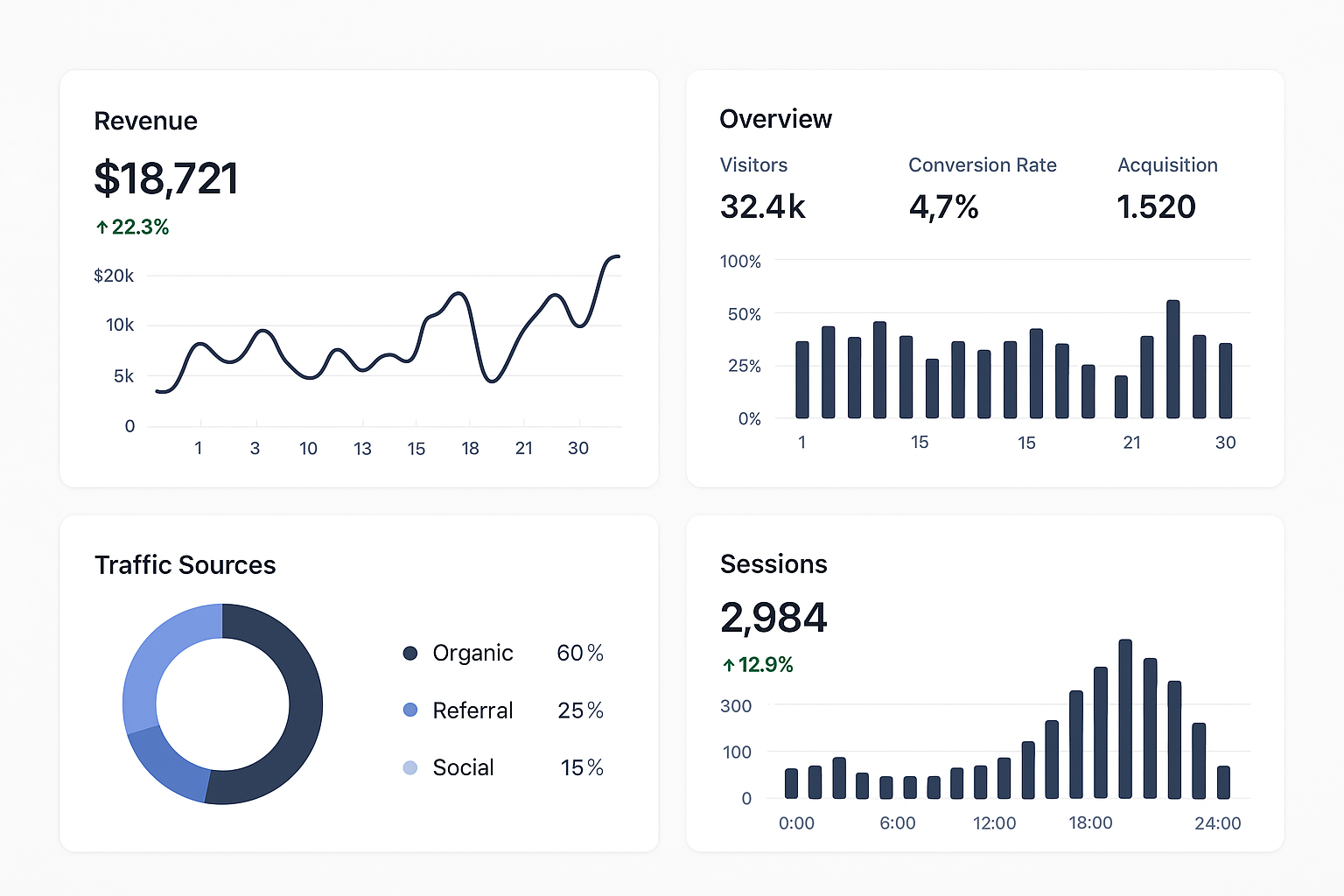
By understanding the unique offerings of each tool discussed, you can make informed decisions that align with your marketing objectives, ultimately enhancing your campaign performance and ROI.
Ready to supercharge your marketing strategy with real-time insights? Don’t miss out—Get Started Now to experience Cometly's AI-driven recommendations and multi-touch attribution that ensure you never miss a conversion touchpoint.
Learn how Cometly can help you pinpoint channels driving revenue.
.svg)
Network with the top performance marketers in the industry